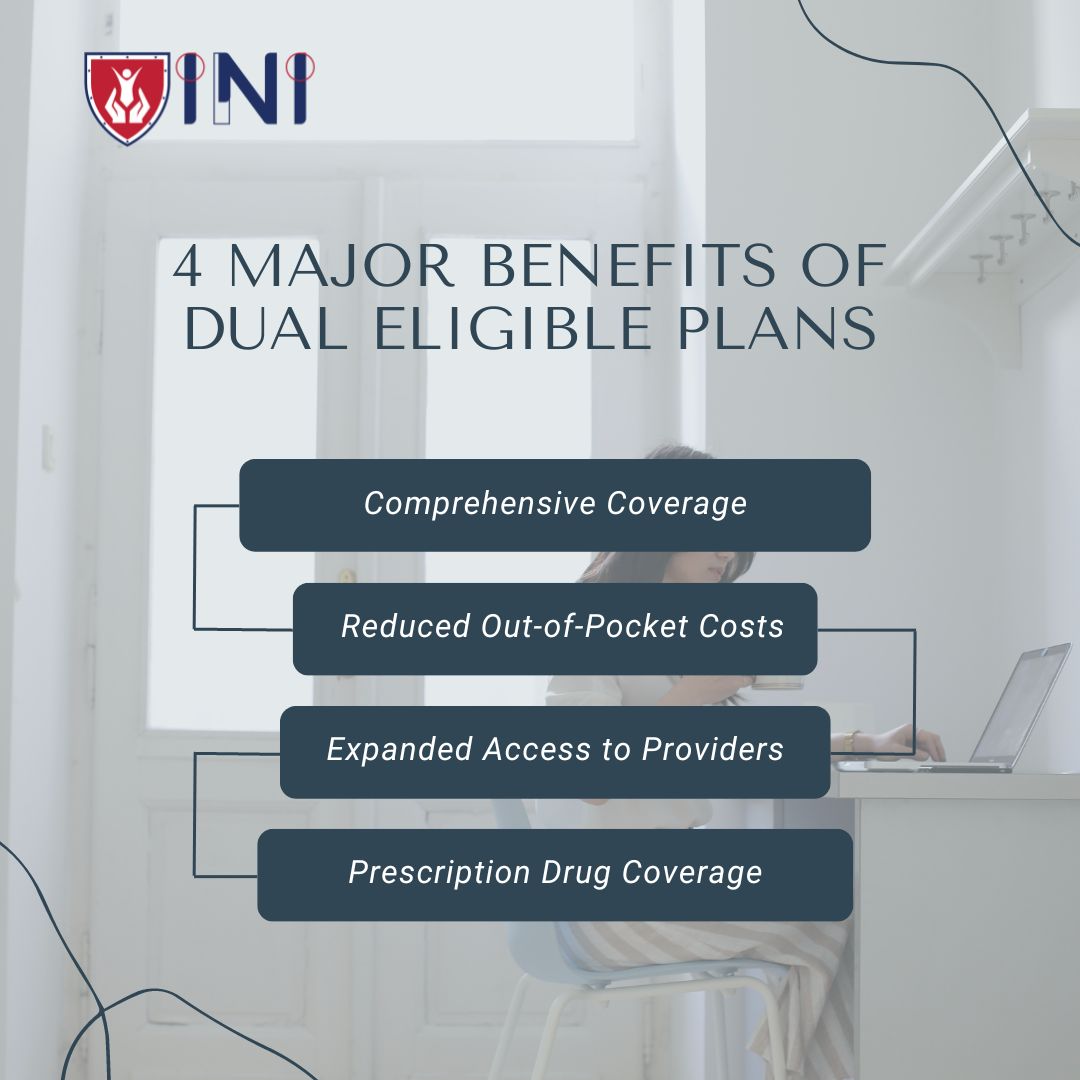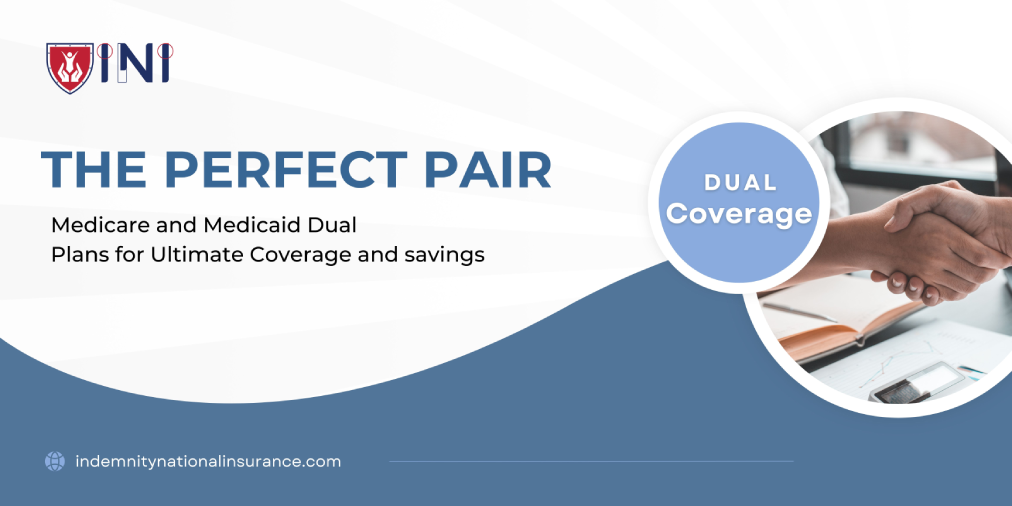Why Are Medicare and Medicaid Dual Plans a Win-Win for Your Health and Wallet?
Healthcare can be a maze, with its complex jargon & policies, along with seemingly endless choices. Navigating through this convolution can be challenging especially for individuals who qualify for both Medicare and Medicaid. But what if we told you that there is a golden ticket—a dual eligible plan—that can offer you the best of both worlds? Yes, it's true!
In this blog post, we will uncover the reasons why Medicare and Medicaid dual plans are the ultimate win-win solution for your health and wallet. So, buckle up and get ready to witness comprehensive coverage, reduced costs, expanded access to providers, and a sigh of relief for your financial well-being.
Let's dive in and discover the incredible benefits awaiting those who qualify for these dual plans.
Understanding Dual Eligibility
The concept of dual eligibility holds the key to a world of extraordinary advantages. But what exactly does it mean to be dual eligible?
Dual eligibility typically refers to individuals who meet the criteria for both Medicare and Medicaid. Medicare, the federal health insurance program, caters primarily to those aged 65 and older, individuals with disabilities, and those with end-stage renal disease. On the other hand, Medicaid, a joint federal and state program, provides healthcare coverage for individuals with low income.
When these two powerful programs converge, a remarkable opportunity arises. Dual eligible individuals gain access to a blend of benefits, resulting in comprehensive coverage that addresses their medical needs holistically.
In the following sections, we'll dive deeper into the reasons why embracing Medicare and Medicaid dual plans is a transformative choice -- that promises comprehensive coverage, financial relief, expanded access to providers, and enhanced well-being.
4 Major Benefits of Dual Eligible Plans

Now that we’ve a clear understanding of what dual eligibility is, let’s take a look at some of the advantages it encompasses.
- ) Comprehensive Coverage
One of the significant advantages of dual eligible plans is the comprehensive coverage they offer. These plans combine the benefits of Medicare and Medicaid, ensuring that you have access to a wide range of medical services. Medicare typically covers hospital stays, doctor visits, prescription drugs, and preventive services.
Meanwhile, Medicaid provides additional benefits like long-term care, nursing home care, and home health services. With dual eligible plans, you can enjoy the best of both worlds and have your medical needs adequately addressed.
- ) Reduced Out-of-Pocket Costs
Medical expenses can quickly add up, and for individuals with limited income, these costs can become a significant burden. Dual eligible plans can help alleviate this financial strain. Medicaid provides coverage for expenses that Medicare may not fully cover, such as deductibles, co-payments, and premiums.
By enrolling in a dual eligible plan, you can minimize your out-of-pocket costs and receive the healthcare services you need without breaking the bank.
- ) Expanded Access to Providers
Another advantage of dual eligible plans is the expanded access to healthcare providers. Medicaid has a broad network of doctors, specialists, hospitals, and clinics, ensuring that you have a wide range of options when it comes to choosing your healthcare providers.
This increased access allows you to find providers who are convenient for you and specialize in the care you require. Moreover, dual eligible plans often include care coordination services to help manage your healthcare needs and ensure that you receive appropriate and timely care.
- ) Prescription Drug Coverage
Medication costs can be a significant concern for many individuals, especially those with chronic conditions that require ongoing treatment. Dual eligible plans typically include prescription drug coverage, which can help reduce the financial burden associated with medications.
Medicare Part D, the prescription drug program, is integrated into dual eligible plans, ensuring that you have access to necessary medications at an affordable cost. This coverage can significantly contribute to your overall health and well-being.
Determining Eligibility: Income Limits and Beyond
Now that we've explored the remarkable advantages of Medicare and Medicaid dual plans, it's essential to understand how eligibility is determined. While the benefits are enticing, it's crucial to meet certain criteria to qualify for these dual eligible plans.
-
Firstly, each state sets its own income thresholds based on the federal poverty level guidelines. To ascertain your eligibility, it's wise to consult your state's Medicaid office or seek guidance from healthcare professionals who can provide accurate and up-to-date information.
-
Secondly, factors such as age, disability status, and specific healthcare needs come into play. It's advisable to gather comprehensive information about the eligibility requirements for dual eligible plans in your state, as program names and specific criteria may vary.
-
Thirdly, understanding the income limits and broader eligibility criteria, can help you take proactive steps to determine your eligibility and enhance the healthcare journey that offers unparalleled benefits and financial peace of mind.
Final Thoughts
Finally, we can conclude by saying -- if you meet the requirements for both Medicare and Medicaid, enrolling in a dual eligible plan can offer numerous advantages for your health and wallet. As we discussed above, these plans provide comprehensive coverage, reduce out-of-pocket costs, expand access to providers, and include prescription drug coverage. By combining the benefits of both Medicare and Medicaid, dual eligible plans ensure that you receive the necessary healthcare services while minimizing financial strain.
Did you find this article helpful? Share it!







